Best Brazilian history movies
Get ready to binge. We've found a collection of must-watch history films from Brazil, now streaming on Netflix, HBO, Hulu, Prime Video, and other top services!

I'm Still Here 2024
A woman married to a former politician during the 1971 military dictatorship in Brazil is forced to reinvent herself and chart a new course for her family after a violent and arbitrary act.
84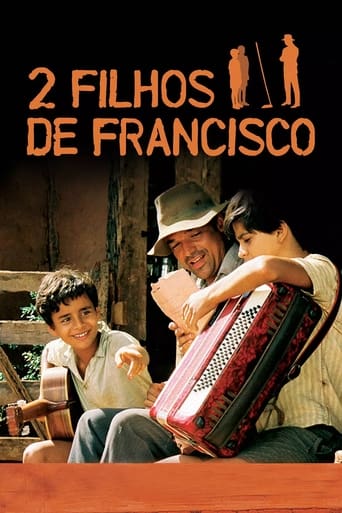
Two Sons of Francisco 2005
The story of Francisco, a very simple and poor man whose dream was to see his children become country music stars, and who made all the efforts to make it happen.
68
Marighella 2021
Afro-Brazilian poet and politician, the legendary Carlos Marighella. Driven to fight against the erosion of civil and human rights following the CIA-backed military coup of 1964 and the brutal, racist right-wing dictatorship that followed, the revolutionary leaves behind his wife and son to take up arms, becoming a notorious enemy to the power structure.
74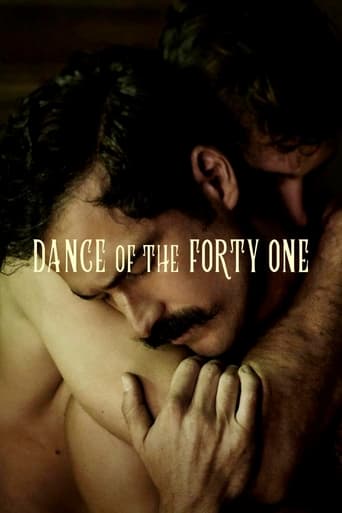
Dance of the Forty One 2020
Mexico City, November 1901. The police raid a private home where a secret party is being held. Among those attending is the son-in-law of President Porfirio Díaz.
69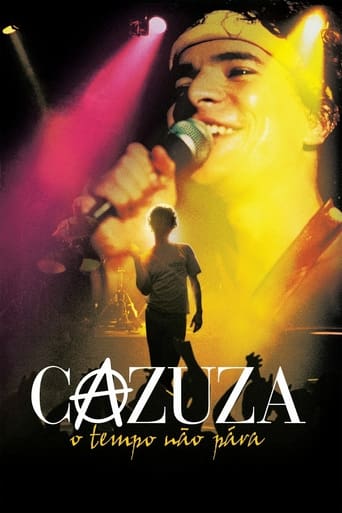
Cazuza: Time Doesn't Stop 2004
Inspired by the moving book “Só as Mães São Felizes”, by Lucinha Araújo, Cazuza's mother, the film covers a little more than 10 years of the singer’s crazy and brief life – from the beginning of his career in the Circo Voador venue, in 1981, to the huge success and the apotheosis of his shows with the Barão Vermelho band, his solo career, his relations with his parents, friends, lovers and passions, and the courage he had to face his final years, with HIV, until his death, in 1990.
72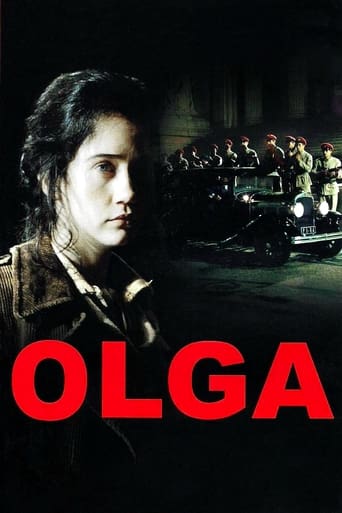
Olga 2004
Based upon the true story of Olga Benário, the German-born wife of Brazilian communist leader Luís Carlos Prestes. During the dictatorship of Getúlio Vargas (1930-1945) she was arrested and sent to Nazi Germany, where she was put to death in a concentration camp. After World War II began, Vargas decided to uphold the Allies.
73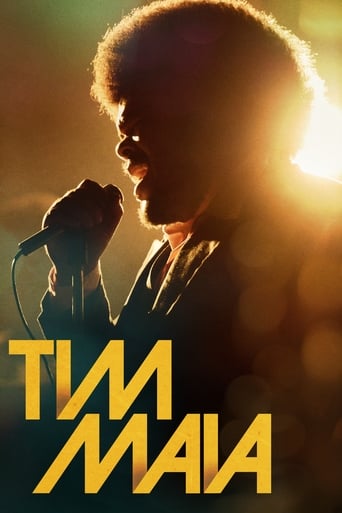
Tim Maia 2014
Biopic of Brazilian singer Tim Maia, from his childhood in Rio de Janeiro until his death at age 55, including his passage by the US, where he discovers a new style of music and is arrested for theft and drug possession.
73
Four Days in September 1997
Fernando, a journalist, and his friend César join terrorist group MR8 in order to fight Brazilian dictatorial regime during the late sixties. César, however, is wounded and captured during a bank hold up. Fernando then decides to kidnap the American ambassador in Brazil and ask for the release of fifteen political prisoners in exchange for his life.
74
Rio 2096: A Story of Love and Fury 2013
“Rio 2096 – A Story of Love and Fury” is an animated film that portrays the love between an immortal hero and Janaína, the woman he has been in love with for 600 years. As a backdrop to the romance, the feature highlights four phases of Brazilian history: colonization, slavery, the Military Regime and the future, in 2096, when there will be a war for water.
77
Love Strange Love 1982
A man remembers forty-eight crucial hours in his life when, as a child, he visited his mother, the favorite woman of an important politician, in a bordello owned by him, right before some important political changes in 1937 Brazil. In those hours, he discovers his own sexuality.
59
Kardec 2019
The story of Allan Kardec, from his days as an educator to his contribution to the spiritist codification.
68
Gonzaga: From Father to Son 2012
Luiz Gonzaga decides to change his destiny and leaves his childhood home for the big city to overcome a romance. When he arrives, he meets a woman he falls in love with, the Odaleia (Nanda Costa). After the birth of his son and his wife's health complications, he decides to return to the road to ensure a better future for his son. He has a friend in Rio de Janeiro and with him leaves the little one and heads to Brazil. He didn't imagine that this distance between them would develop into a complicated relationship, enhanced by the strong personalities of both. Based on conversations between father and son, this is the story of Luiz Gonzaga, a singer and accordion player known as Rei do Baião or Gonzagão.
77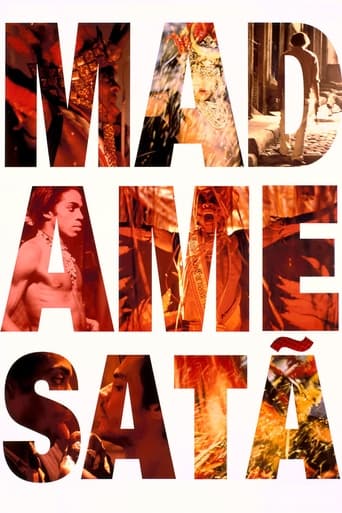
Madame Satã 2002
In the favelas of Rio de Janeiro of the 1930s, João Francisco dos Santos is several things — son of slaves, ex-convict, thug, homosexual and adopted father for a number of pariahs. João expresses himself on the stage of a cabaret as Madame Satã.
76
Mussum, o Filmis 2023
The trajectory of Antônio Carlos Bernardes Gomes, known as Mussum, from Trapalhões. His poor childhood, his military career, his relationship with Mangueira and his success with the group Originais do Samba, as well as behind the scenes as a member of Trapalhões.
71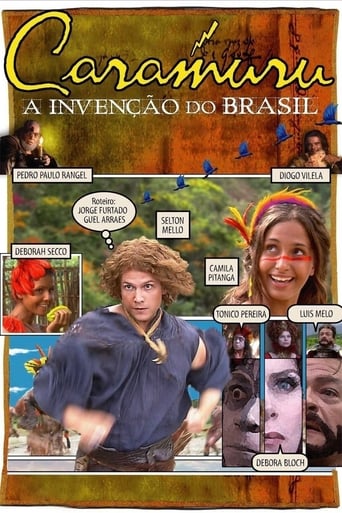
Caramuru: Brazil Reinvented 2001
Diogo Álvares, a Portuguese map illustrator, reaches the Brazilian coast, after his caravel sinks. He is saved by the Indian chief Itaparica and his two daughters, Paraguaçu and Moema. They call him Caramuru and together they engage in a happy love triangle. But the chance to return to Portugal arises, and it is clear this amoral arrangement cannot last.
67
Man Marked for Death, Twenty Years Later 1984
Eduardo Coutinho was filming a movie with the same name in the Northeast of Brazil, in 1964, when there came the military coup. He had to interrupt the project, and came back to it in 1981, looking for the same places and people, showing what had ocurred since then, and trying to gather a family whose patriarch, a political leader fighting for rights of country people, had been murdered.
84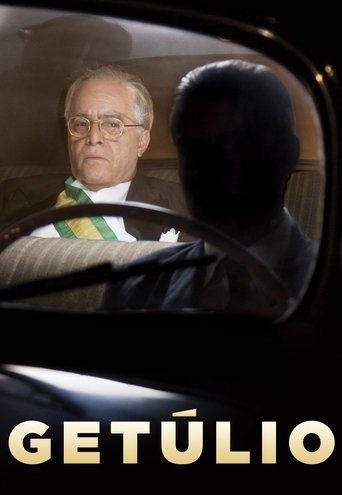
Getulio 2014
The movie depicts the political crisis that led to the suicide of president Getúlio Vargas, in the 19 days that preceded August 24, 1954. The crisis began with the attempted assassination of journalist and politician Carlos Lacerda in August 5, 1954, at rua Toneleros, Rio de Janeiro, in which Major Vaz was assassinated instead. Investigations pointed to Gregório Fortunato, chief of Vargas' personal guard, as the orderer of the frustrated assassination. This incident was one of the most importants in the history of Brazil.
66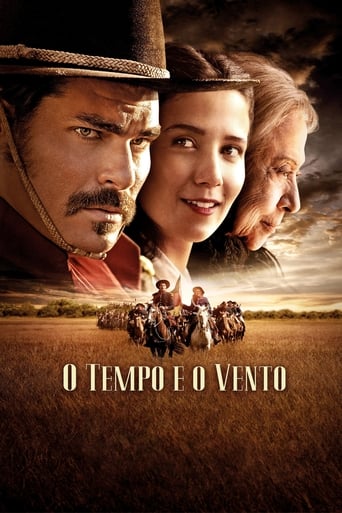
Time and the Wind 2013
Based on Érico Verissimo's literary trilogy, Time and the Wind follows 150 years of the Terra Cambará family and their opponents, the Amaral family. The struggles between the two families begin in the missions and lasts until the end of the 19th century. The film also features the period of formation of the state of Rio Grande do Sul and the dispute of territory between the Portuguese and Spanish crowns.
73
Zuzu Angel 2006
Covering the last years of the famous Brazilian fashion designer in her doomed quest for justice, Zuzu Angel follows the case of her activist son Stuart's arrest, torture, murder, and subsequent corpse disposal by the military forces in early 1970s Rio de Janeiro, during the darkest era of Brazilian military regime and media censorship.
72
Lula, the Son of Brazil 2010
The true story of a working class boy who moves to the nation's financial capital at a young age and becomes one the most influential politicians in Brazilian history.
62
Hebe 2019
Hebe Camargo is one of the most emblematic entertainments in Brazil. At her 60s, she went on to control her own career and, despite the criticism, the dreadful husband and the powerful and sexist bosses, she revealed herself to the public as an extraordinary woman, capable of overcoming any personal or professional crisis.
74
Nothing to Lose 2018
Authorized biopic of Brazilian evangelical bishop Edir Macedo, founder of the Universal Church of the Kingdom of God and owner of Record TV network. Based on a book trilogy of the same name, the movie tells the story of the self-made man who faced several moments of turbulence while pursuing his conviction.
49
Xingu 2012
In the '40s, three brothers decide to live a great adventure and enlisting in the Roncador-Xingu Expedition, which has a mission to tame the Central Brazil. The Villas Boas brothers: Orlando, 27, Claudius, 25, and Leonardo, 23, engage in a fantastic and incredible saga. Soon start to lead the expedition that opens new paths 1,500 km, navigates over 1,000 miles of unspoilt rivers, opens 19 airfields for airplanes Army, gives rise to the creation of 43 towns and 14 make contact with wild Indian tribes, unknown, as the Xavante, courageous and feared warriors, no casualties on both sides. This adventure allows the Villas Boas brothers the creation of the Xingu National Park, the first major Amerindian reservation in Brazil, the size of Belgium, transforming them into true contemporary heroes.
70
Minha Fama de Mau 2019
An emotional dive into the music and life of Erasmo Carlos, from his years as a young rock-and-roller looking for gigs through his enduring musical partnership with Roberto Carlos.
71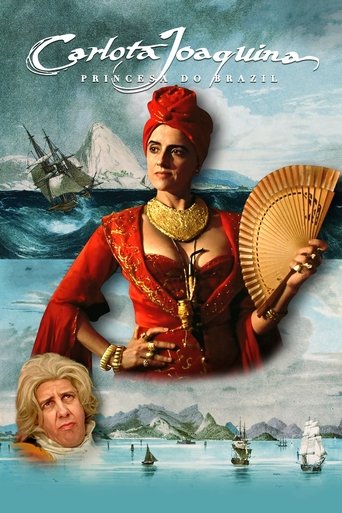
Carlota Joaquina, Princess of Brazil 1995
The Spanish Infanta Carlota Joaquina is promised to D. João VI at the age of 10. Forced to leave for Portugal, Carlota suffers a great disappointment when she meets her promised prince. With the death of D. José, Carlota Joaquina and D. João VI inherit the Portuguese crown. However, frightened by the French Revolution and the approach of Napoleon's army, they decide to flee to their colony: Brazil.
62
Baptism of Blood 2007
In São Paulo, in the late 1960s, the convent of the Dominican friars became a trench of resistance to the military dictatorship that governs Brazil. Moved by Christian ideals, frets Betto, Oswaldo, Fernando, Ivo and Tito came to support the guerrilla group Ação Libertadora Nacional, commanded by Carlos Marighella.
73
Meu Nome é Gal 2023
Film about the Bahian singer dives into the moment when shy Gracinha becomes Gal Costa, during the violent, innovative and mind-blowing years that helped shape Brazil's greatest singer.
65
Road 47 2014
During World War II, looking up the Mountain, in Italy, a Brazilian Expeditionary Force - FEB - mines weeping platoon is hit by a panic-attack that sets them running aimlessly right in the middle of 'no man's land'. Desperate cold and hungry, the ill-prepared soldiers have to choose between facing military court or delve deeper into enemy lines. After a tense discussion, they decide to save their faces with the Brazilian Army by tackling a daring military objective: to disarm the most feared minefield in Italy. On their way there, they end meeting two others deserters; a remorseful Italian soldier trying to join the Partigianos and German officer who is just simply tired of war. with unexpected help of their ex-enemy, the soldiers are set to accomplish a mission that so far had been deemed impossible.
64
Heleno 2011
José Henrique Fonseca crafts an ambitious and long overdue homage to a central icon in Brazil’s 20th century history. Reminiscent of film noir classics, the biopic tells the glorious and tragic story of the legendary football striker Heleno de Freitas. The sumptuous black and white cinematography reflects the chic life of Rio de Janeiro in the 1940s as it fell under the spell of sports royalty. Heleno was no doubt one of the most popular players of his time for his bravura in the field and magnificent goal-scoring that lead the Botafogo team to the top and himself into a vicious downward spiral.
63
The Patient 2018
The true story of Tancredo Neves, the first civilian president of Brazil after a 20-year military dictatorship, and the infamous hospitalization which led to his death before he ever managed to take office.
70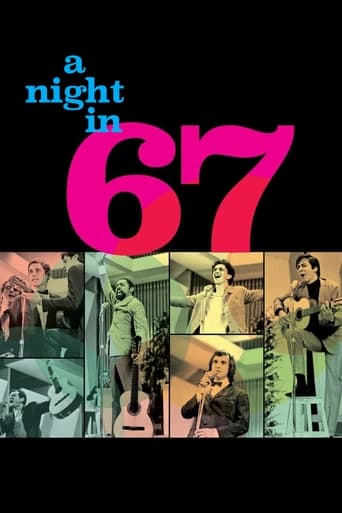
A Night in 67 2010
In the 1970s, "festivals" were incredibly popular in Brazil, as they were recorded before a live studio audience, and usually featured a number of elimination rounds. They also formed the springboard for the career of many a big-name stars, such as Chico Buarque, Caetano Veloso, Roberto Carlos and Gilberto Gil. Appearing on such a program was no cakewalk, however: audiences could be as wild in their condemnation as in their appreciation of an artist. Extensive archive footage (including performances and behind-the-scenes interviews) from the turbulent final evening of the Festival of Brazilian Popular Music 1967 paints a fascinating picture, not only of the transformation of Brazilian music into real "festival" music, but also of a society starting to buck against the yoke of military rule.
78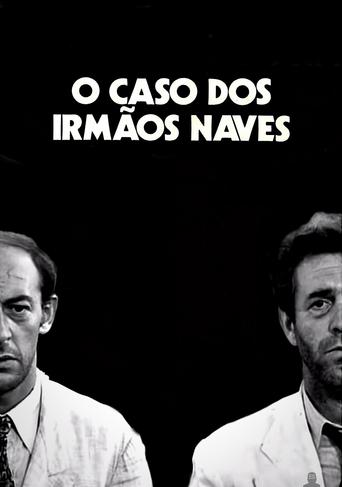
Case of the Naves Brothers 1967
After their relative and associate runs way, the Naves brothers inform the police of the incident, who end up arresting them under the accusation of murdering the missing person. The brothers are tortured in order to confess a crime they did not commit while their wives are raped.
75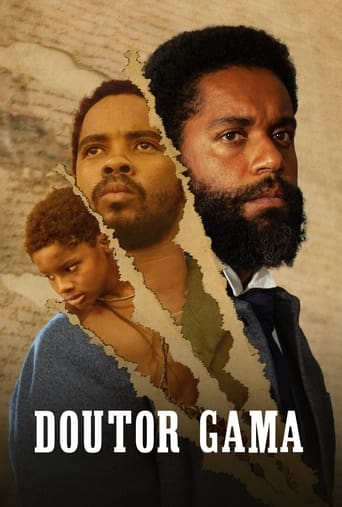
Dr. Gama 2021
Based on the biography of Luiz Gama, one of the most important characters in Brazilian history, a black man who used the laws and courts to free more than 500 slaves. Born of a free womb, Gama was sold into slavery at the age of 10 to pay off his father's gambling debts. Even as a slave, he became literate, studied and earned his own freedom, becoming one of the most respected lawyers of his time. An abolitionist and republican who inspired an entire country.
76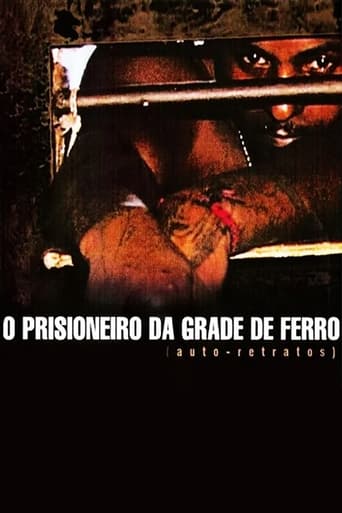
The Prisoner of the Iron Bars 2004
In 2002, the greatest prison in Latin America, Complex Carandiru, was demolished. A couple of months before its implosion, director Paulo Sacramento trained some inmates and together with his crew, they produced many hours of footage, showing daily life in prison.
81
The Dead Queen 2018
Inspired on the true events of the Portuguese king Don Pedro (14th Century) which unburied his mistress to make her queen after dead. This film tells the story of Pedro, a man admitted to a psychiatric hospital for traveling by car with the corpse of his beloved, recalling simultaneously three different lives: one from the past, another from nowadays and another one from an distopic future.
70
The Battle of Canudos 1997
At the end of the 19th century, a poor family comes to the rural Canudos, a community led by Antônio Conselheiro, seen by many as a holy prophet. Their ways bother the powerful people of the region, and the newly founded Republic sends their army to destroy the settlement, which culminates in one of the bloodiest wars in the history of Brazil.
66
Irmã Dulce 2014
Biographical film of Sister Dulce, who, in life, was called the “Good Angel of Bahia”, also nominated for the Nobel Peace Prize and canonized by the Catholic Church. Contemplating from the 1940s to the 1980s, the film shows how the Catholic nun faced an incurable respiratory disease, machismo, the indifference of politicians and even the dogmas of the Church to dedicate her life to the care of the miserable, leaving a legacy that continues today.
72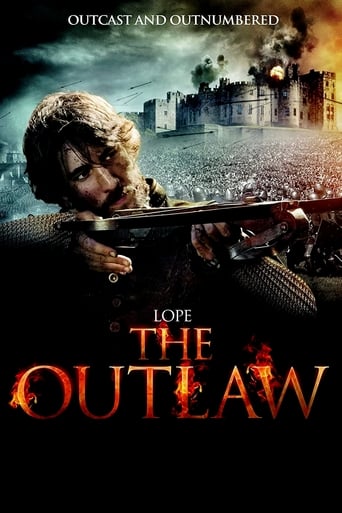
Lope: The Outlaw 2010
A chronicle of the life of Spanish playwright and poet Lope de Vega, who dominated Spain's early Golden Age of Theater in the 16th century. Lope returns home from war and enters the theater world when a producer's beautiful daughter takes a shine to him. They embark on a passionate affair as his plays begin to win popular acclaim.
60
Cinema Novo 2016
A deep investigation, in the way of a poetic essay, on one of the main Latin American movements in cinema, analyzed via the thoughts of its main authors, who invented, in the early 1960s, a new way of making movies in Brazil, with a political attitude, always near to people's problems, that combined art and revolution.
71
Chatô, The King of Brazil 2015
The true story of Assis Chateaubriand, the first magnate of communications in Brazil. Due to his influence during the late 1930s up to the early 1960s, he has come to be called 'the Brazilian Citizen Kane'.
55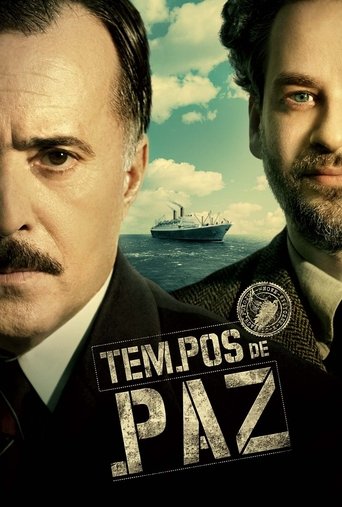
Peacetime 2009
Rio de Janeiro, April 18, 1945. Brazil's foreign policy aligns closely with that of the United States and opens a brief period of democratic rule after the end of World War 2. For years, hundreds of people were arrested and tortured by the Vargas regime. But with the external pressure, several political prisoners gain freedom.
66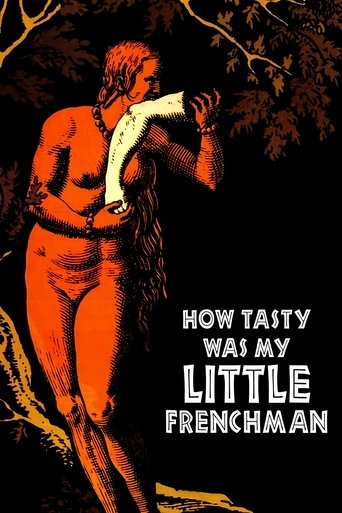
How Tasty Was My Little Frenchman 1971
Brazil, 1594. The Tupinambás natives are friends of the French and their enemies are the Tupiniquins, friends of the Portuguese. A Frenchman is captured by the Tupinambás, and in spite of his trial to convince them that he is French, they believe he is Portuguese. The Frenchman becomes their slave, and maritally lives with Seboipepe.
64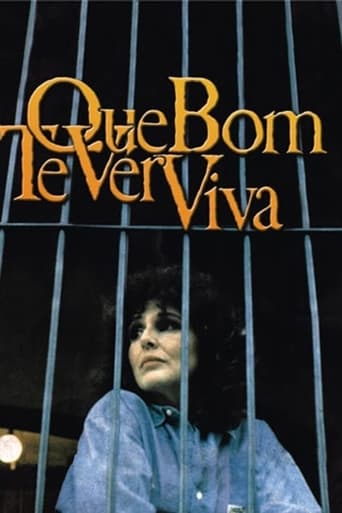
How Good to See You Alive 1989
Four years after a military coup overthrew the Brazilian government in 1964, all civil rights were suspended and torture became a systematic practice. Using a mix of fiction and documentary this extraordinary film is a searing record of personal memory, political repression and the will to survive. Interviews with eight women who were political prisoners during the military dictatorship are framed by the fantasies and imaginings of an anonymous character, portrayed by actress Irene Ravache.
74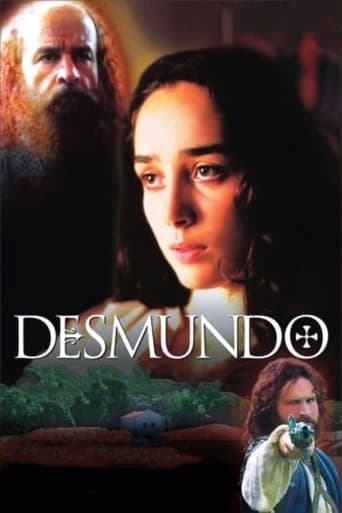
Desmundo 2002
The story of Orisbela, a young and religious woman who comes from Portugal to Brazil to marry Francisco de Albuquerque, a rude sugar-cane plantation owner, in 1570.
69
Xica 1976
The romanced story of Xica da Silva, a slave that used her "feminine atributes" in order to get power.
68
Mauá - O Imperador e o Rei 1999
A movie about a Brazilian entrepreneur who rivalled American's richest man at his time, well-known Rockfeller. Irineu Evangelista de Souza in 1867 had $155.000 contos de reis, meanwhile the Brazilian Governement annual budget was 97.000 contos de reis. The movie shows his life from poverty to riches and back to poverty again, as is common in Brazil, rich people die poor.
68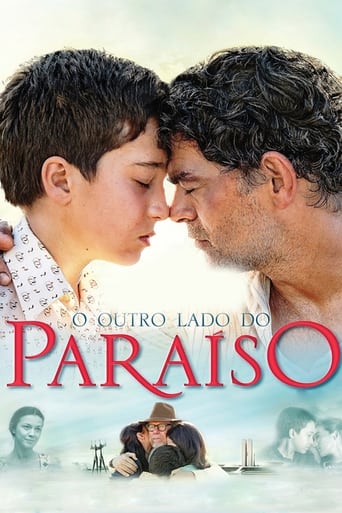
The Other Side of Paradise 2014
Nando, a 12 year old boy, narrates the adventures of his father Antonio, during the 60s in Brazil, who leaves the inland of the state of Minas to go to Brasília, a recently inaugurated city, but still with construction works in progress.
84
I Am Cuba, the Siberian Mammoth 2005
Contemporary film critics regard the epic film I Am Cuba as a modern masterpiece. The 1964 Cuban/Soviet coproduction marked a watershed moment of cultural collaboration between two nations. Yet the film never found a mass audience, languishing for decades until its reintroduction as a "classic" in the 1990s. Vicente Ferraz explores the strange history of this cinematic tour de force, and the deeper meaning for those who participated in its creation.
77
The Age of the Earth 1980
Drawing inspiration from a poem penned by Castro Alves, this film vividly captures the political, cultural, and intellectual climate of Brazil during the late 1970s. At its core, the story revolves around four distinctive embodiments of Christ's image: a black man, a soldier, an Indian, and a guerrilla fighter. These courageous individuals, hailed as the harbingers of doom in the tupiniquim lands, valiantly combat the insatiable avarice and oppressive "civilizing" brutality propagated by the formidable John Brahms—a foreign exploiter devoid of morals.
58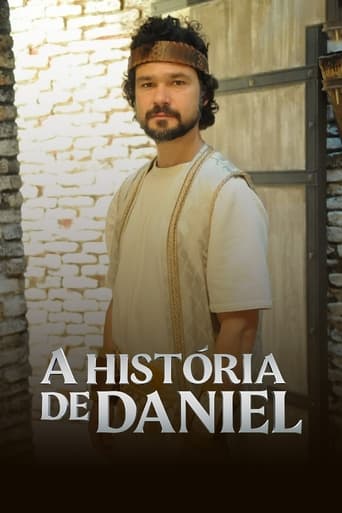
A História de Daniel 2023
100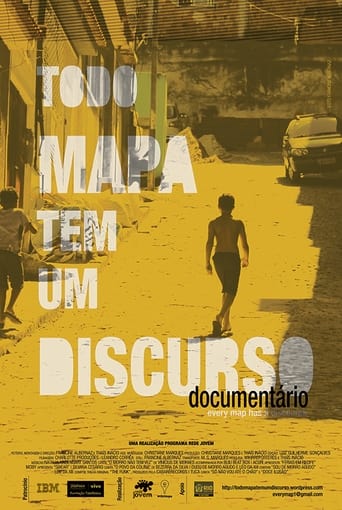
Every map has a discourse 2014
100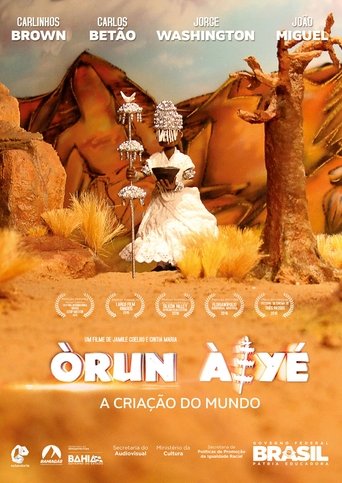
Òrun Àiyé: A Criação do Mundo 2016
Òrun Áiyé shows the journey of Oxalá (Carlinhos Brown) to fulfill his mission, the creation of the world. The animation will be narrated by the griot figure, represented through the historian, Ubiratan Castro (1948-2013), affectionately called Bira (Carlos Betão), who will lead the discovery of his granddaughter, Luna (Fernanda Crescencio), to the living memory that is the African continent. The gods Orunmila (Jorge Washighton), Oduduwa (Fábio Santana), Exú and Nanã will play a fundamental role in the outcome of this story.
100
Não Sei Qual Cidade se Passa aos Olhos Dele 2019
100
Dirty Hearts 2012
In 1945, Japan surrendered to the United States and the Second World War was over. Right? Wrong. For eighty percent of the Japanese community in Brazil, Japan had won the war and defeat was nothing more than American propaganda. The few immigrants that accepted the truth were persecuted. Some were hunted down and assassinated - by their own countrymen - causing the start of a new, private war. Dirty Hearts is a thriller and love story told by the wife of one of the fanatics dedicated to preach Japanese victory. Little by little, she watches her husband, a hard-working immigrant, become an assassin and their love story fade away.
63
José do Egito - O Filme 2016
100
10 Seconds to Win 2018
The history of the famous Brazilian bantam and featherweight world champion Eder Jofre, who tries to deal with his personal life and the obligations of a world class athlete, with the mentoring of his trainer and father Kid Jofre.
65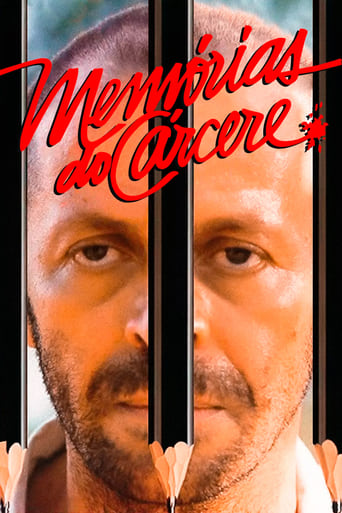
Memories of Prison 1984
In the 1930s, novelist and politician Graciliano Ramos is accused of being a communist sympathizer. He is then arrested and sent to the Ilha Grande prison, where he experiences the disturbing treatment reserved for common prisoners.
69
The Man in the Black Cape 1986
Biography of Brazilian congressman Tenório Cavalcanti, who used to appear in public carrying a machine-gun, and wearing a black cloak.
70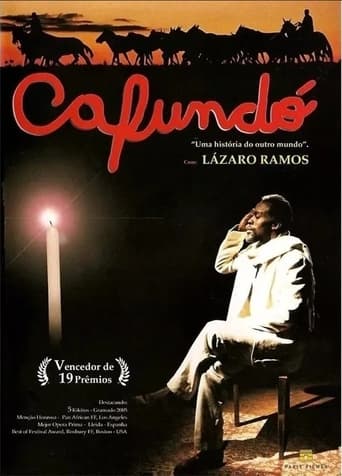
Cafundó 2005
Cafundó is a 35 mm color film which blends fact with fiction in the life of João de Camargo, a former black slave (1858-1942, Sorocaba, Brazil) who, in his old age, works miracles and devotes himself to assisting others in order to attain his freedom. João de Camargo represents the genesis of religious and cultural syncretism in Brazil.
80
Diary of a Provincial Girl 2003
The day-to-day life of a young girl in the town of Diamantina, Brazil, on the end of 19th Century, based on real life diaries.
81
Paulo Coelho's Best Story 2014
Paulo Coelho is the world’s most translated living author, his books having sold over 165 million copies. But he was not always the inspirational global phenomenon he is today. Like the heroes in his spiritual classics THE ALCHEMIST and THE PILGRIMAGE, he long-searched for his calling, flirting with death, escaping madness, falling in love, and making rock ’n’ roll history in Brazil, all-the-while striving for success as a writer. A wild ride through a lifetime of stranger-than-fiction adventures, PAULO COELHO’S BEST STORY is a profoundly moving film that goes straight to the heart of the most beloved literary guru of our time, revealing the most incredible wonder of all: the man behind the masterpieces.
52
The Secret Agent 2025
Brazil, 1977. Marcelo, a technology expert in his early 40s, is on the run. He arrives in Recife during carnival week, hoping to reunite with his son but soon realizes that the city is far from being the non violent refuge he seeks.
78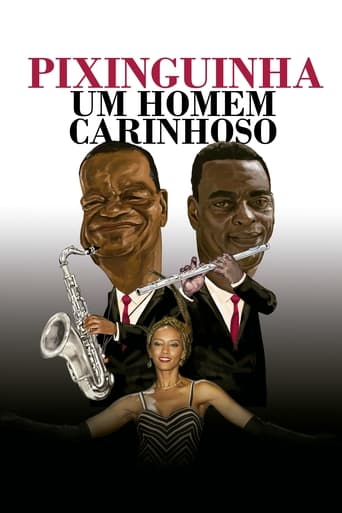
Pixinguinha, an Affectionate Man 2021
The life of legendary Brazilian musician Alfredo da Rocha Vianna Filho, better known as Pixinguinha.
76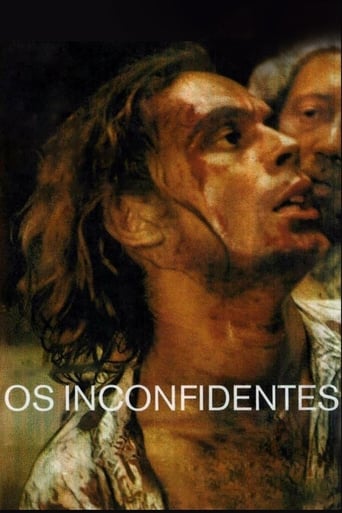
The Conspirators 1972
The real story of the failed attempt of an independence coup by a group of intellectuals and rich men during Brazil's colonial days, from its beginning to the execution of Tiradentes.
70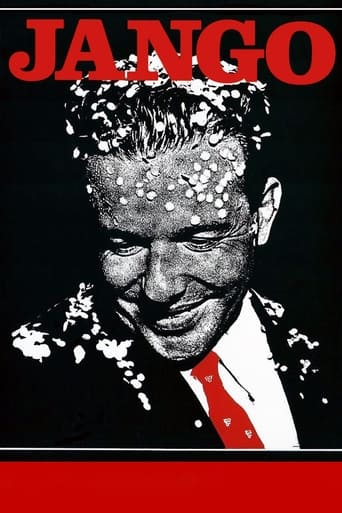
Jango 1984
The story of João "Jango" Goulart, the Brazilian left-wing president deposed by the military.
78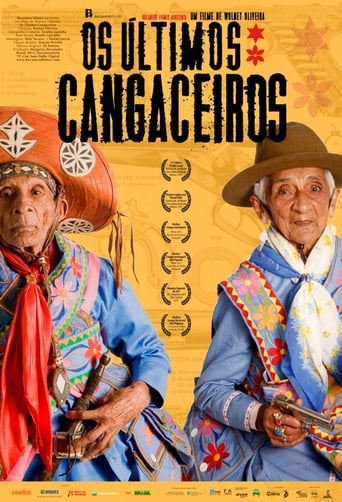
The Last Cangaceiros 2011
For more than 50 years, Durvinha and Moreno hid their real identity even to their own children, who grew up thinking their parents' names were Jovina Maria and Jose Antonio Souto. They had belonged to the gang of the most famous Brazilian bandit's leader. The truth was revealed when Moreno, at the age of 95, decided to share the weight of memories with his children and meet alive relatives, including his first child. The 'cangaceirismo' was a form of 'social banditry' born in northeastern Brazil in the early XX century in a scenario of extreme poverty, violence and anarchy.
80